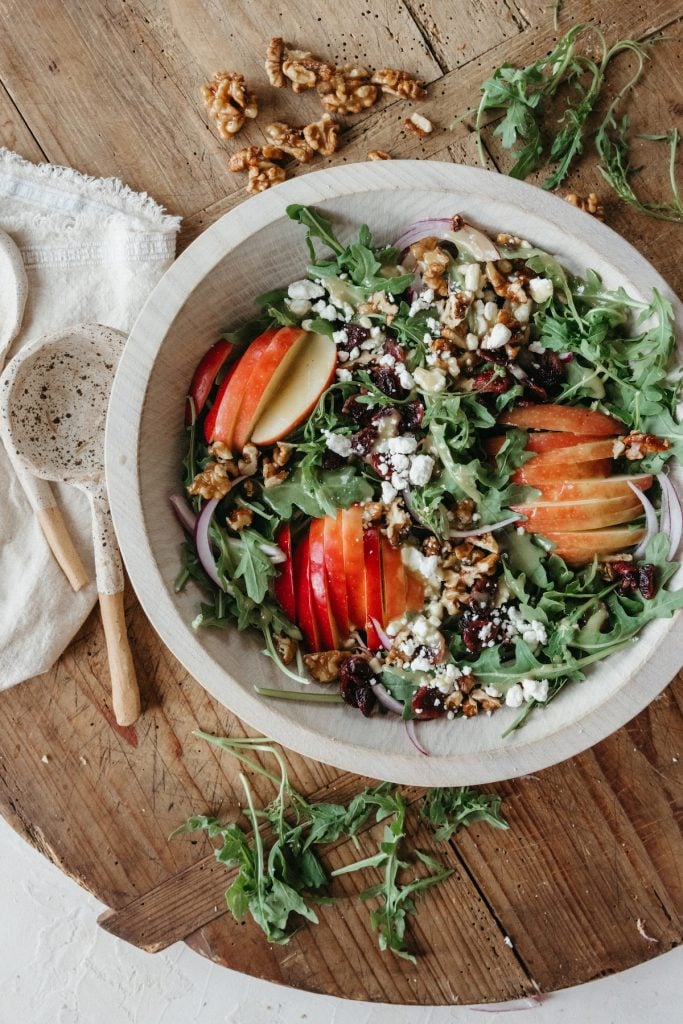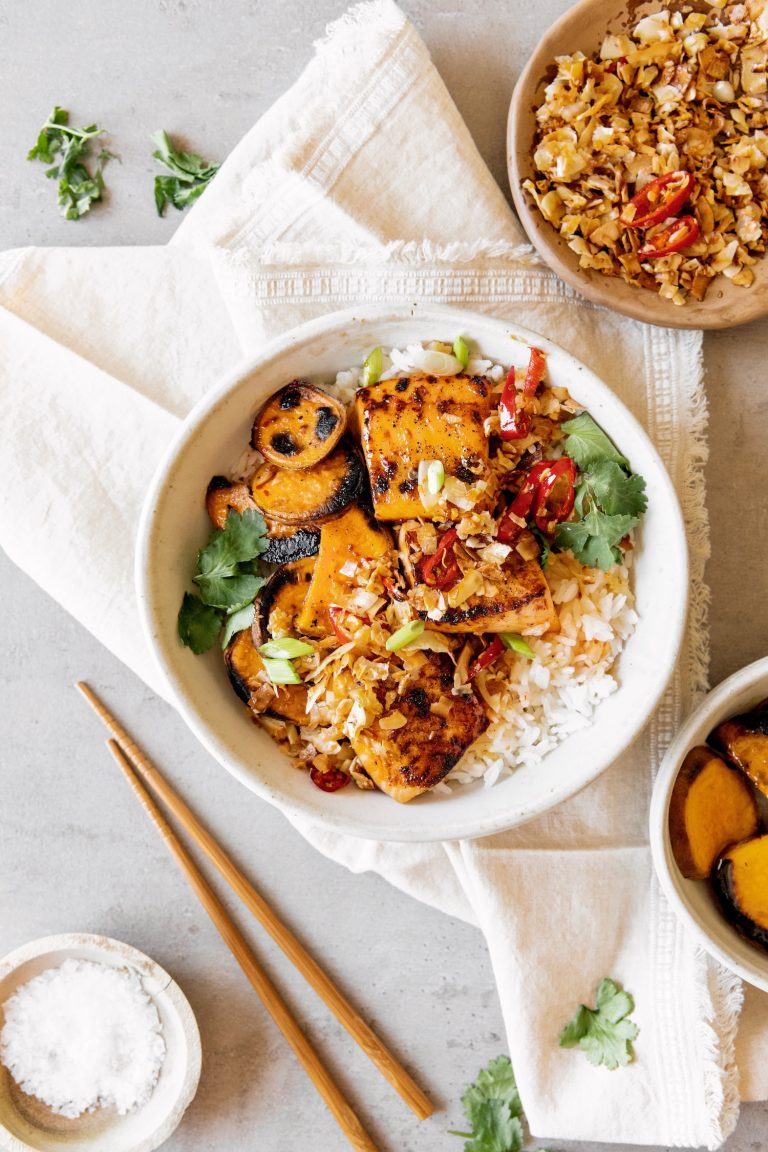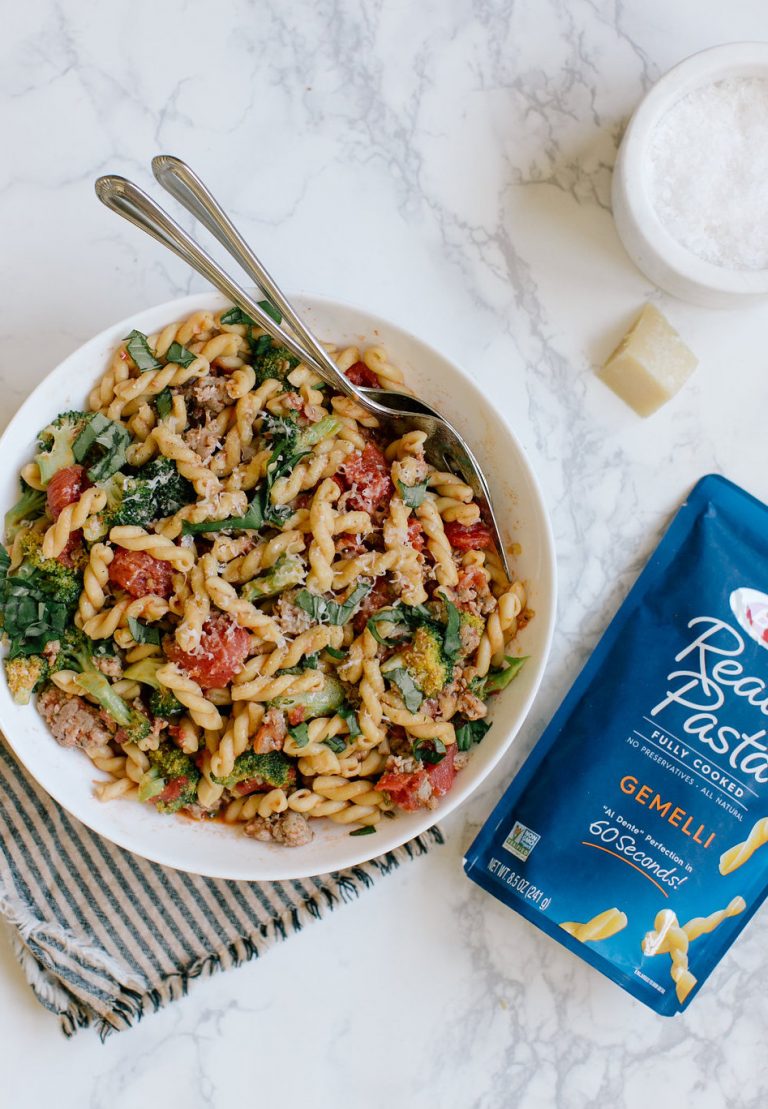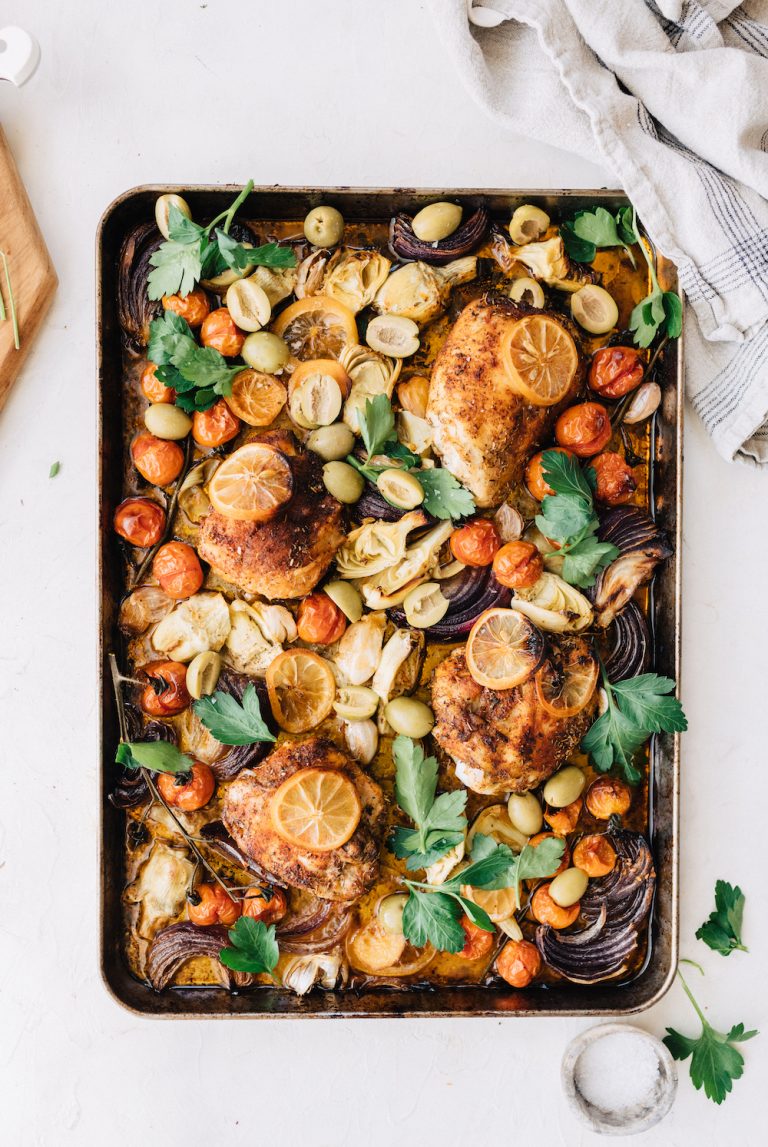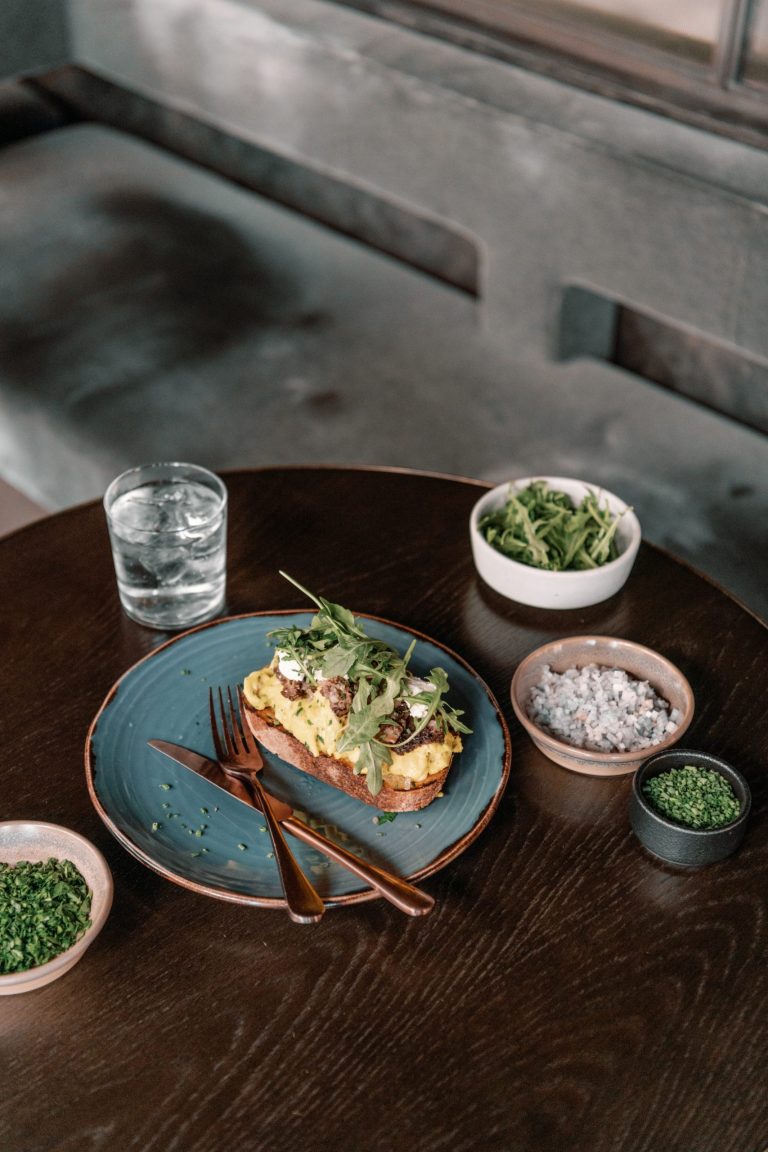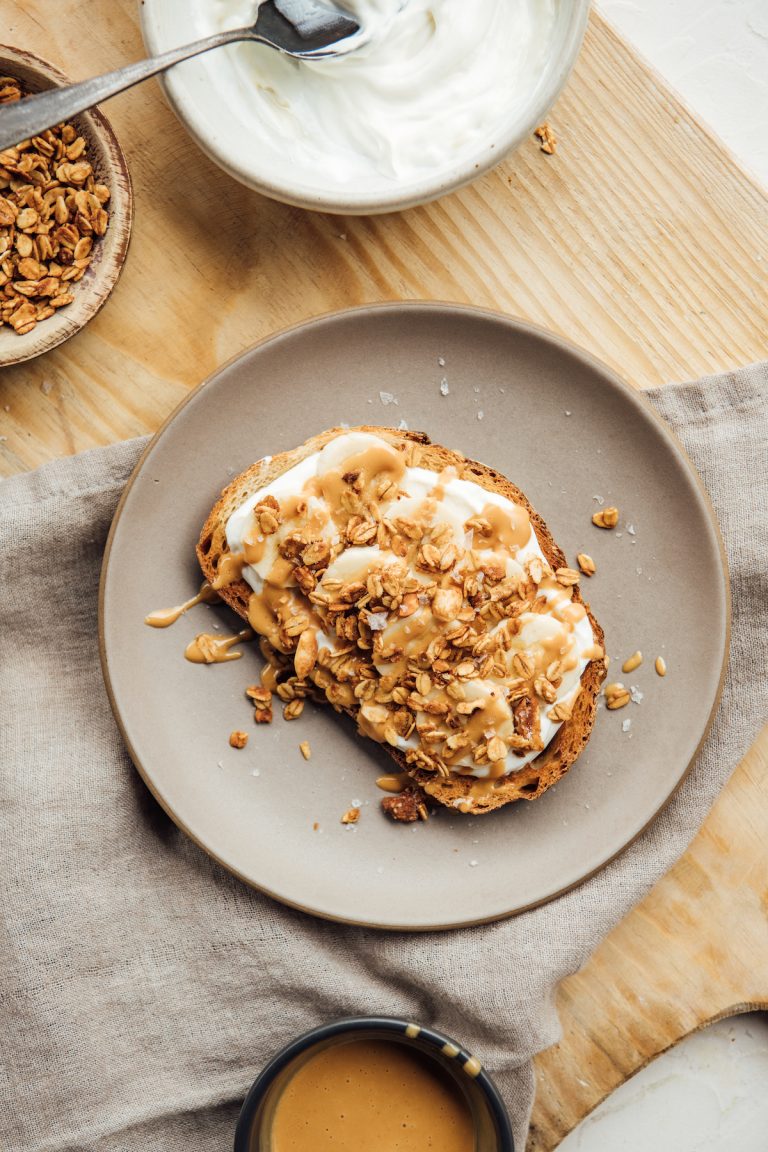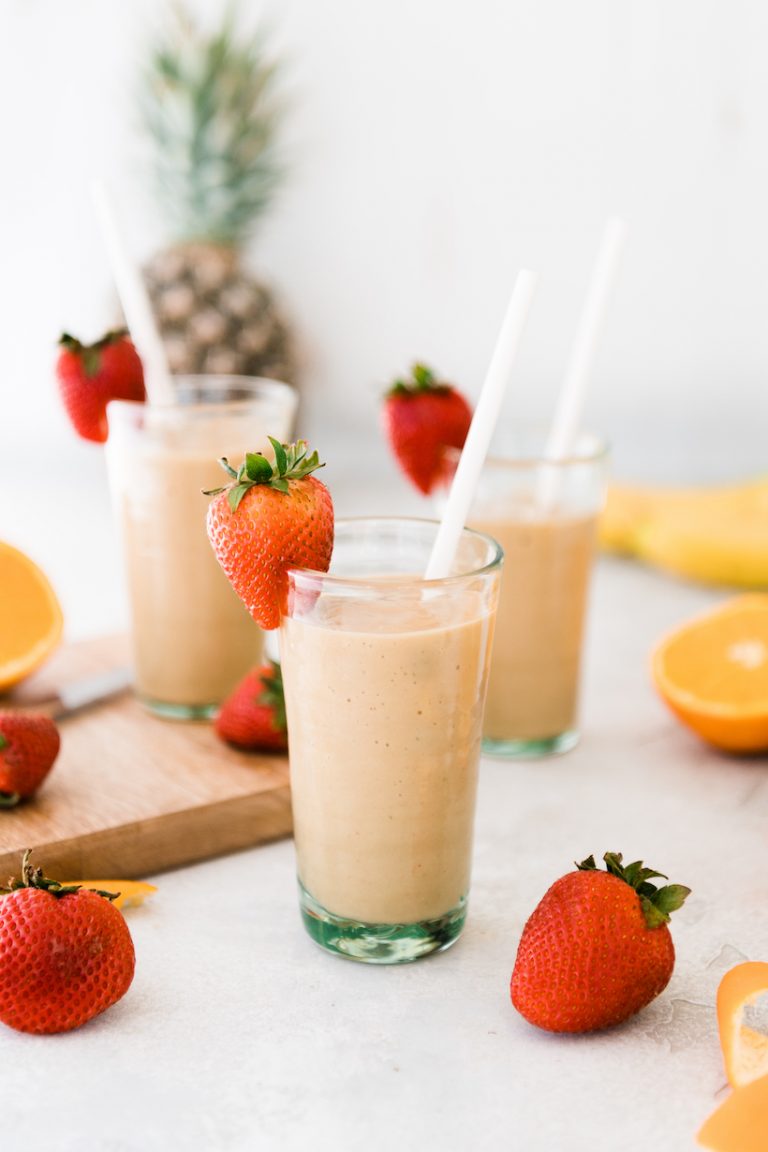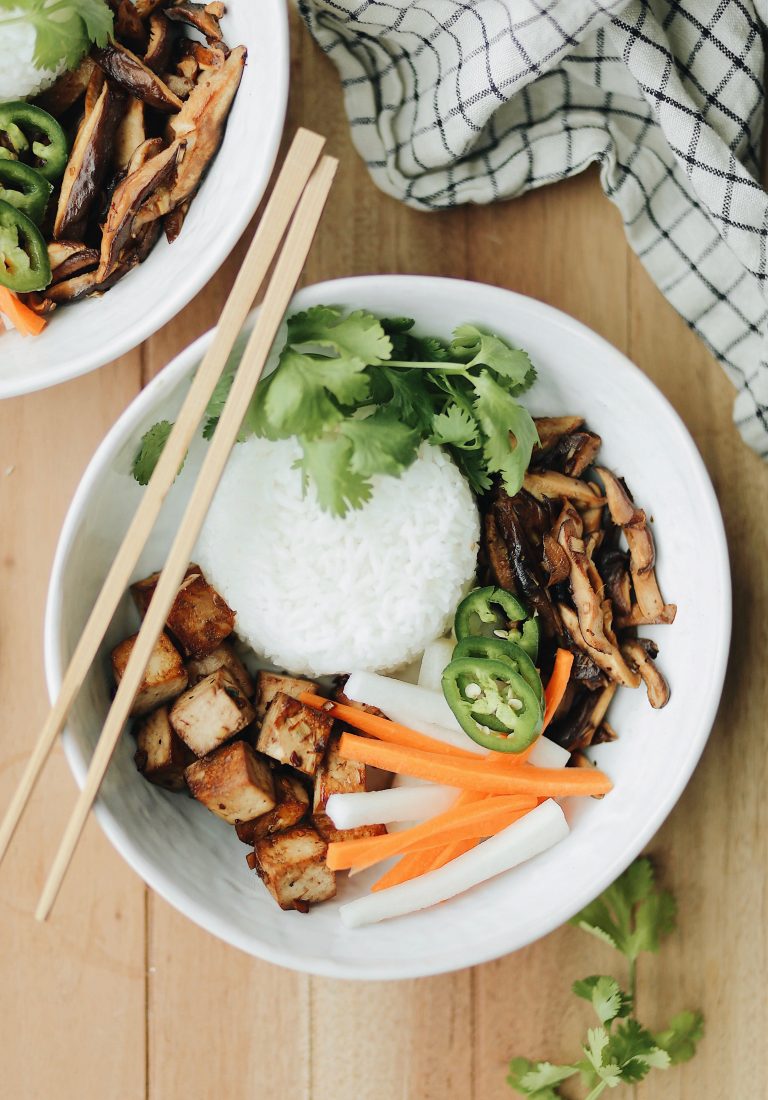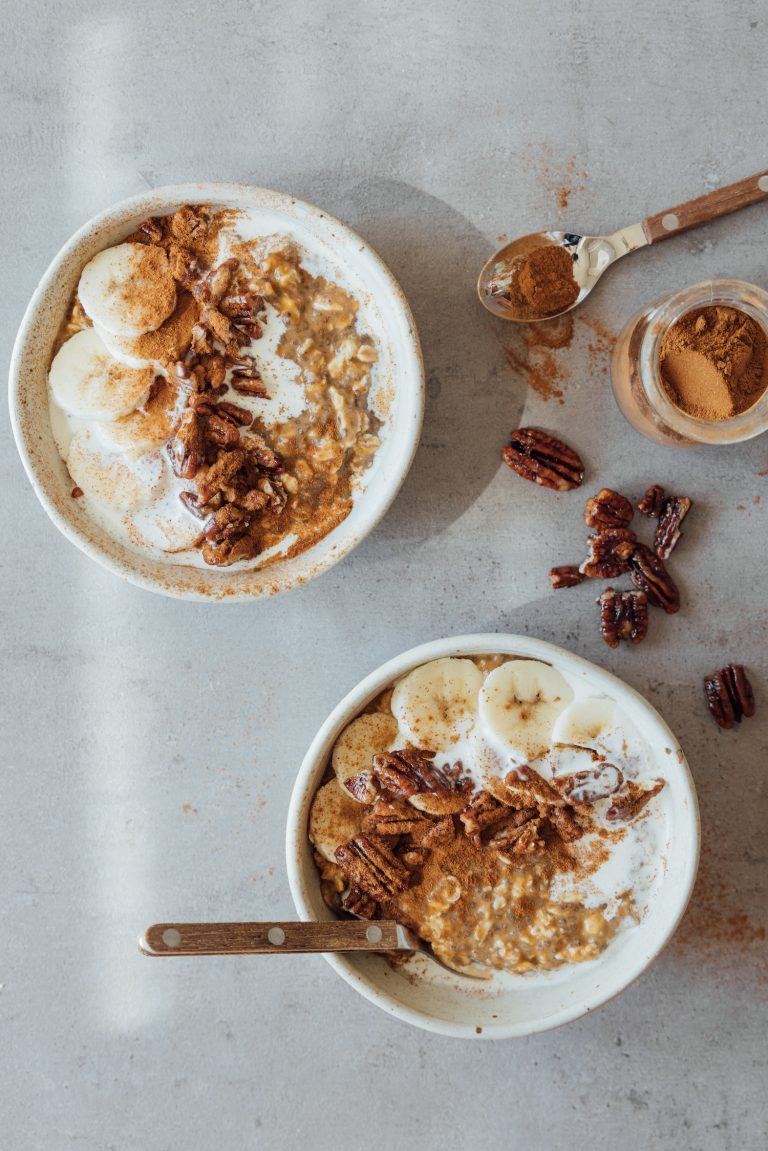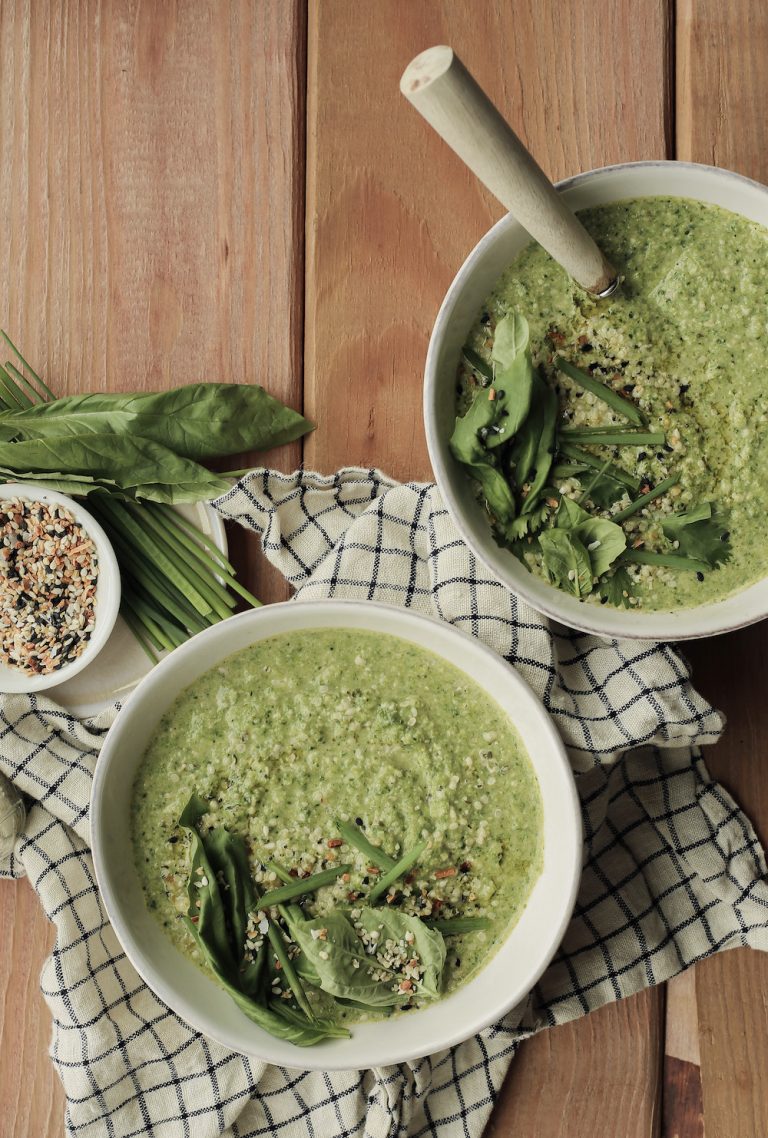We’ve said it once, and we’ll say it again: We love our beauty rest. We take our sleep very seriously over here. After all, a happier, healthier you happens when your body gets proper rest. Although most people know sleep is essential, few prioritize it. In fact, it’s estimated that 70% of adults get insufficient sleep (at least one night per month). Roughly 11% of adults report sleep woes every night. Regardless of age and socioeconomic class, sleep disorders are common. Thankfully, we have tips for getting a better night’s sleep. Even better news: we’re adding to that list with foods that promote a restful, restorative snooze. If you haven’t heard of tryptophan, it’s sleep’s secret weapon. Foods high in tryptophan might just be what the doctor ordered.
Featured image from our interview with Inge Theron by Teal Thomsen.
What is tryptophan?
Tryptophan—or L-tryptophan (its full name)—is an essential amino acid. It’s found in foods like animal protein, cheese, yogurt, eggs, nuts, and seeds. It serves several important purposes, like nitrogen balance in adults and growth in infants. Basically, it helps the body create proteins and certain brain-signaling chemicals. Unlike vitamin K, which your body can make on its own, tryptophan is different. The human body gets all the tryptophan it needs via diet or supplements.

It’s the precursor. Once consumed, your body turns tryptophan into a B vitamin called niacin. Niacin plays a key role in creating serotonin. As you probably know, serotonin is associated with sleep. Niacin is also correlated with melatonin levels. In essence, think of tryptophan as the precursor of melatonin and of the neurotransmitter, serotonin. Tryptophan is known to increase serotonin and melatonin levels.
Does eating turkey make you sleepy?
Not exactly. Like melatonin, foods high in tryptophan can make you sleepy. However, that turkey coma has less to do with the turkey, specifically, and more to do with eating a variety of other foods that also contain tryptophan. Thanksgiving is a tryptophan gold mine. There is no more tryptophan in turkey than in other commonly served meats, like chicken and beef. Plus, tryptophan can really only make you tired, immediately, if it’s eaten or taken without any other amino acids. And the protein in turkey contains plenty of other amino acids.
In all reality, other foods—like dairy (a common ingredient in Thanksgiving dishes)—contain more tryptophan. Furthermore, foods containing carbs also help produce serotonin and tryptophan. Oftentimes, carb-rich Thanksgiving side dishes contribute to why you feel sleepy. Serotonin is responsible for drowsiness, so it’s no surprise that most of us crave a nap before pumpkin pie. The more you know.

How Tryptophan Works in the Body
As mentioned, the body uses tryptophan to help make melatonin and serotonin. Melatonin helps regulate our sleep-wake cycles, and serotonin is known to help regulate appetite, sleep, mood, and more. When you eat (or supplement) L-tryptophan, your body absorbs it and converts it into serotonin. Serotonin transmits signals between your nerve cells and also narrows (constricts) blood vessels. The amount of serotonin in the brain can affect mood. Beyond the brain, the liver can also use tryptophan. This is where it produces niacin (vitamin B3). We need niacin for energy metabolism and DNA production.
Why We Need Tryptophan
Generally speaking, tryptophan is required to maintain adequate protein levels in the body. This is especially important for infants. In newborns, tryptophan is essential to brain maturation. It also aids in the development of regulating hunger cues, satiation, and sleep-wake-rhythm. Tryptophan is found in breast milk, which is why it’s important for a nursing mother to eat foods high in tryptophan.

Tryptophan Benefits
There is limited research and studies to show that tryptophan is directly correlated to treating things like mood swings and irritability. However, low levels of tryptophan have been seen in people with depression. Some claim up to 60 milligrams of L-tryptophan daily may help improve mood or ward off mental health disorders such as depression. More on tryptophan supplements, below.
Regardless, tryptophan is the precursor to serotonin, and serotonin affects mood and sleep quality. Tryptophan is necessary for making proteins and other important molecules in your body.
Are tryptophan supplements safe?
Although there are many foods high in tryptophan, it can be taken as a supplement. It is likely safe at moderate doses. However, always consult with your doctor by changing your supplement routine. Occasional side effects may occur (heartburn, stomach pain, and more). They could become more serious if you’re also taking medication that influences your serotonin levels, such as antidepressants.
10 Foods High in Tryptophan
In addition to these tips for sleeping better, consuming foods high in tryptophan might be the ticket to the most restful night of your life.
Walnuts
One serving of walnuts—about a handful—contains 318 mg of tryptophan. Alongside the sleep-promoting amino acid, walnuts are also a strong source of healthy fats and protein. While they add a tasty crunch to this salad, walnuts make for a tasty pre-bedtime snack an hour or two before going to sleep.
Recipe: Apple Walnut Salad
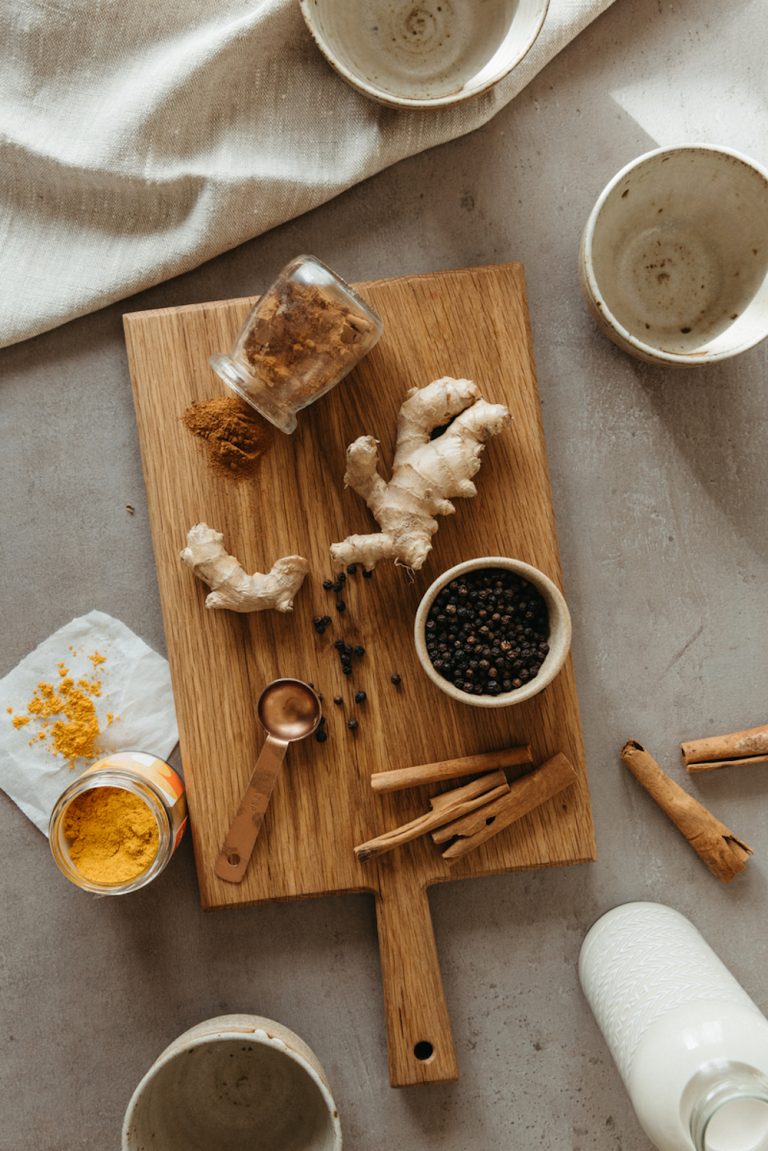
Milk
Whole milk is one of the largest sources of tryptophan, including 732 milligrams per quart. However, 2% reduced fat milk is also a good source, coming in at 551 milligrams per quart.
Salmon
Wild-caught salmon is one of the healthiest foods, due to its high concentration of anti-inflammatory omega-3 fatty acids. It also contains key vitamins. As a great source of protein, salmon also contains a lot of tryptophan. A 6-ounce fillet contains a whopping 570 mg (203% of the RDI).
Recipe: Hot Honey Glazed Salmon
Turkey
About two servings of turkey contain about 410 milligrams of tryptophan—close to the daily requirement of this important nutrient.
Recipe: Gemelli with Turkey Sausage and Broccoli
Chicken
Although turkey is a significant source of tryptophan, it isn’t the largest. Light meat contains 410 milligrams per pound (raw) and dark meat contains 303 milligrams per pound. Chicken also contains high amounts of tryptophan, with light meat containing 238 milligrams per pound, and dark meat containing 256 milligrams per pound.
Recipe: Lemony Sheet Pan Chicken With Artichokes and Spring Veggies
Eggs
Eggs are rich in tryptophan. They also contain significant amounts of Vitamin A, B12, and selenium. One large hard-boiled egg provides 6.3 grams of protein and 27% of the RDI for tryptophan.
Recipe: Scrambled Egg and Mushroom Toast
Greek Yogurt
Given its high protein count, Greek yogurt is rich in tryptophan. Some personal trainers swear by Greek yogurt before bed.
Recipe: Yogurt Toast with Peanut Butter and Banana
Pineapple
Pineapple contains plenty of tryptophan to boost serotonin in the brain. Additionally, pineapple is full of bromelain, which has anti-inflammatory properties.
Recipe: Tropical Pineapple-Ginger Smoothie
Tofu
As far as plant-based proteins are concerned, tofu is a wonderful source of tryptophan. Soy products contain plenty of this essential amino acid. For example, when you cook tofu, one cup of firm tofu packs an impressive 592 mg (212% RDI), and an 8-ounce glass of soy milk has 92 mg.
Recipe: Spicy Tofu Banh Mí Bowl
Oats
Prepared oatmeal can also be a good source of tryptophan, with 147 milligrams per cup.
Recipe: Pumpkin Overnight Oats
Cashews
The nuts with the most tryptophan are cashews, pistachios, and almonds. Cashews are rich in tryptophan and magnesium, both essential for overall health and controlling mood swings.
Recipe: Big Green Immunity-Boosting Vegetable Soup
This post was originally published on November 4, 2021, and has since been updated.

